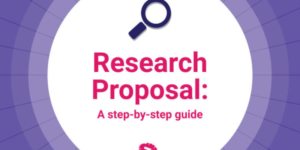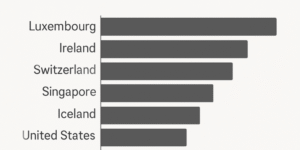Education beyond compulsory schooling in the United Kingdom (UK) can broadly be divided into higher education (HE) and further education (FE). While both are essential components of lifelong learning, they serve different purposes, target different student populations, and fulfil distinct roles in the national and global education system. This article explores the differences between these two sectors, their purposes, and their significance in shaping learners’ futures.
Defining Higher Education
Higher education refers to post-secondary education at universities, colleges, and specialist institutions that award academic degrees and professional qualifications. It encompasses undergraduate programmes such as bachelor’s degrees, postgraduate qualifications including master’s degrees and doctorates, and professional certifications in fields like law, medicine, and engineering (Sharley, Nguyen & Levy, 2025).
HE is closely associated with academic research, critical inquiry, and intellectual development. It is often positioned as the pinnacle of academic achievement, offering students opportunities to specialise in a field, contribute to research, and develop advanced knowledge and transferable skills (Ball, 2025).
In the UK, higher education has traditionally been linked with universities, though not exclusively. Institutions such as higher education colleges and specialist conservatoires also play a significant role. The Teaching Excellence Framework (TEF) and regulatory oversight by the Office for Students (OfS) further ensure standards of quality and accountability (Raposo, 2025).
Defining Further Education
Further education refers to education that takes place after compulsory schooling (up to age 16) but below the level of higher education. This includes a wide variety of learning opportunities, such as:
- Vocational qualifications (e.g., BTECs, NVQs)
- Apprenticeships
- Adult education courses
- Access programmes preparing students for HE
- Continuing education for personal development or retraining (Manktelow, 2025).
FE plays a central role in supporting skills development and widening participation in education. It is often delivered by colleges of further education, community learning providers, and private training organisations. Unlike HE, FE tends to be more practically oriented, designed to meet the needs of industries and local economies by equipping learners with employable skills (Korpan, 2025).
Importantly, FE is not only for young people but also for adult learners who may be reskilling, upskilling, or pursuing personal enrichment later in life (Hollmann, 2025).
Purpose and Orientation
One of the clearest distinctions lies in purpose.
- HE primarily serves to foster academic knowledge, research skills, and professional qualifications, preparing individuals for graduate-level employment or further scholarship (Zingaretti, 2025).
- FE, by contrast, emphasises practical training, vocational competence, and flexible learning pathways, catering to both school leavers and adults in employment transitions (Macmillan, 2022).
This distinction is vital in addressing the economic and social needs of society. Whereas HE often drives innovation and knowledge creation, FE ensures a skilled workforce and supports social mobility.
Accessibility and Participation
A major theme in contemporary debates concerns the accessibility of higher education. Rising tuition fees and associated student debt have raised questions about equity and inclusivity (van Eck, 2025). In contrast, FE tends to be more accessible, offering shorter, affordable, and more flexible routes into education and employment.
For instance, apprenticeships allow students to “earn while they learn,” reducing financial barriers while directly linking training to employment opportunities (Krige, Millar & Rode, 2025). In this sense, FE is often seen as a bridge either into the workforce or as a stepping-stone into HE.
Lifelong Learning and Adult Education
Both sectors play roles in lifelong learning, though in different ways. FE has long been associated with adult and community learning, offering opportunities for retraining and personal growth throughout life (Hollmann, 2025). HE, meanwhile, has expanded part-time, online, and distance learning programmes, making advanced study more accessible to working adults (Zingaretti, 2025).
In the context of a rapidly changing economy, particularly with the rise of automation and digital technologies, lifelong learning has become crucial. Both HE and FE are therefore vital in ensuring that individuals remain competitive and adaptable (Sharley, Nguyen & Levy, 2025).
The Policy Landscape
UK government policy has shaped both HE and FE differently over time. For HE, the introduction of tuition fees in the late 1990s and subsequent fee increases have altered student demographics and funding models (van Eck, 2025). By contrast, FE policy has often focused on employability and skills, with initiatives to align training provision with the needs of employers (Macmillan, 2022).
Recent debates, including around the Lifelong Loan Entitlement, aim to blur the rigid distinction between HE and FE, enabling students to mix academic and vocational study over time (Department for Education, 2023).
Global Perspectives
While this article focuses primarily on the UK, the distinction between HE and FE is visible worldwide, albeit under different terminologies. For example, in Canada and the United States, community colleges provide education equivalent to FE, while universities deliver HE. Similarly, in parts of Europe, dual systems of vocational and academic education illustrate parallel pathways (Hollmann, 2025).
These comparisons highlight that the boundary between HE and FE is not rigid but socially and politically constructed, reflecting national priorities in education, labour markets, and social policy.
In summary, higher education and further education are complementary but distinct. HE provides academic depth, research, and professional qualifications, while FE delivers vocational training, practical skills, and flexible access routes to learning. Both are vital in supporting economic growth, personal development, and social equity.
The two sectors should not be seen as hierarchically ordered but as interdependent pathways. As societies increasingly value lifelong learning, the distinctions between HE and FE may become more fluid, with learners moving between them over the course of their lives. What remains clear is that both play indispensable roles in equipping individuals to thrive in a complex, changing world.
References
Ball, E. (2025). Session 41 Workshop: Mentoring. Student Experience Proceedings. [Available at: https://openjournals.ljmu.ac.uk/studentexp/article/view/3303]
Department for Education (2023). Lifelong Loan Entitlement: Government consultation response. London: DfE.
Hollmann, K. (2025). Interrupted engagement: student perspectives on persistence, disconnection, and graduation in a rural high school. Simon Fraser University. [Available at: https://summit.sfu.ca/item/39622]
Korpan, C. (2025). Me-search research: The use of a self-study methodological approach to teaching documentation. Documenting Teaching Excellence. [Available at: https://uen.pressbooks.pub/documentingteachingexcellence]
Macmillan, R. (2022). Mobilising Voluntary Action in the UK: Learning from the Pandemic. Journal of Social Policy. Cambridge University Press.
Manktelow, N. (2025). Promoting the political engagement of people with intellectual disabilities. University of Wolverhampton. [Available at: https://wlv.openrepository.com/items/d28d44d0-9a73-403e-92b9-9540adf3a465]
Raposo, E. (2025). Advancing student engagement in business management education: The impact of practice-based role-play. Patterns of Practice. University of East London. [Available at: https://repository.uel.ac.uk/item/8zz0z]
Sharley, V., Nguyen, H.T.D., & Levy, S. (2025). Glocal Social Work Education. Routledge International Series. Routledge.
Van Eck, M. (2025). Retaining Degree Certificates for Outstanding Student Debts: A Social-Justice and Ethical Issue in the Legal Profession. Obiter, 46(2). [Available at: https://journals.co.za/doi/abs/10.10520/ejc-obiter_v46_n2_a4]
Zingaretti, M. (2025). Bridging scholarship and practice in higher education. Taylor & Francis.









